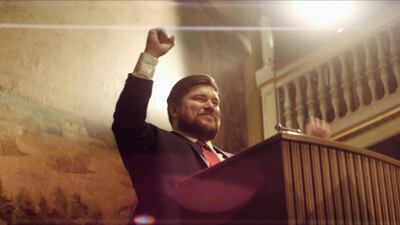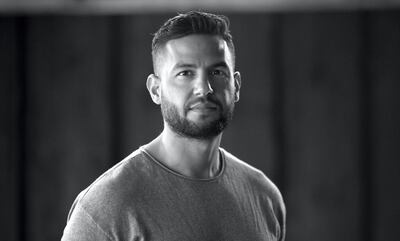How do we combat the return of neo-Nazi political parties to parliaments across the globe? This is the topical question at the heart of 31-year-old Danish director Ulaa Salim's debut film, Sons of Denmark, which is playing in competition at both the Rotterdam and Gothenburg Film Festivals this week.
Set in the near future, one year after a bomb exploded in Copenhagen, ultra-nationalist politician Martin Nordahl has used this attack to propel his National Movement to the top of the polls. Calling for forced repatriation, his words fuel a neo-Nazi group, the Sons of Denmark, to carry out violent acid attacks on ethnic minorities, especially those from an Arab background. In this climate of hate and fear, 19-year-old Zakaria feels compelled to act and turns to a group of militant Islamists.
A film worth talking about
“I made this film to discuss something,” says Salim, who graduated from Denmark's National Film School in 2017.
“It’s important for me to criticise what to me seems to be a world where extreme voices are becoming more normalised. There is something going on about the normalisation of the extreme and that is something I wanted to address.”
What he shows is nationalists and Islamist fundamentalists – two groups seemingly at polar opposites – who use similar rhetoric and emotional arguments to convince young men to turn to violence for their cause. “I tried to let the characters feel more similar than different to each other; the extreme elements remind me a lot of each other,” Salim says.
In researching the film, he looked at what they had in common. “No matter where they were from, or how they ended up in these situations, it was a sense of injustice," he says. "They are scared that someone will take away their dignity, take away their liberty. Who would not do anything to let their family live in peace?”
In between all these extremes is a policeman, Malik, who is caught in the middle of his own double identity dilemma. He must protect Nordahl, a politician whose politics would see him ejected from Denmark.
Reflecting on his own experiences
Salim was born in Denmark. His parents left Iraq just before Saddam Hussein came to power. For the film, he drew from observations and personal experiences growing up on the island of Amager, on the outskirts of Copenhagen.
“I think no matter how you twist and turn, you will always use yourself in your films,’ he says. “There are not many that can tell this story from my point of view - a first or second-generation perspective -because it didn’t exist before. I think in the past 20 years only a handful of people of Arab descent have graduated from the National Film School.”
Salim shot his graduation film, Land of Our Fathers, in Jordan, and it won the Best Muhr Gulf Short award at the Dubai International Film Festival in 2017.
Malik represents the moderate point of view at the start of the film, and the story becomes more complicated when it looks at the world through the policeman's eyes. “He represents the people in the middle, who are hearing extreme voices all the time; they are the ones that will lose the most. It’s a metaphor in many ways. We will all lose in the middle if we don’t reflect on what is happening."
The film is told as a thriller. The influence of Jacques Audiard and Martin Scorsese are imprinted throughout Salim's debut film, especially with his central character, who doesn't know which way to turn.
"Every now and then I keep watching Raging Bull, and when I see it, I get these complex feelings," says Salim. "I wanted to do something about double identity and tried to push that in the structure of the story. How do you do that cleverly in a film?"
Salim succeeds by balancing thriller genre elements with a contemporary political tale.



